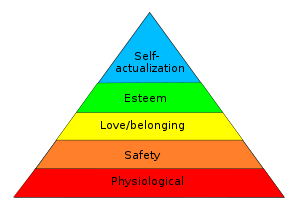Doug McCrae
Legend
There are two main PC motivations in rpgs. Firstly, the pursuit of personal gain, usually money and/or magic items. Secondly the desire to defeat evil.
The first motivation, personal gain, works well with sandbox play because the game world typically contains a great many opportunities to acquire wealth and magic items - there are lots of dungeons. The second motivation, defeat evil, doesn't work so well because the amount of evil beings within easy reach of the PCs and also actively and obviously causing harm will be far fewer.
A third possible motivation is the pursuit of glory, like the heroes of the Iliad or the PCs in Pendragon, but this is unusual in rpgs. A fourth, thrillseeking, is also unusual.
Once the PCs have achieved significant wealth it's hard to justify why they would want more. Or at least, why they would expose themselves to great danger in pursuit of more. So the first motivation, personal gain, doesn't work well for long term campaign play. The second motivation, defeat evil, does as there will always be more evil.
How does one successfully combine sandbox and campaign play? The answer, it seems to me, is PCs who are motivated by personal gain but, if they ever successfully acquire fortunes, immediately lose or quickly squander them, in the manner of Conan.
The first motivation, personal gain, works well with sandbox play because the game world typically contains a great many opportunities to acquire wealth and magic items - there are lots of dungeons. The second motivation, defeat evil, doesn't work so well because the amount of evil beings within easy reach of the PCs and also actively and obviously causing harm will be far fewer.
A third possible motivation is the pursuit of glory, like the heroes of the Iliad or the PCs in Pendragon, but this is unusual in rpgs. A fourth, thrillseeking, is also unusual.
Once the PCs have achieved significant wealth it's hard to justify why they would want more. Or at least, why they would expose themselves to great danger in pursuit of more. So the first motivation, personal gain, doesn't work well for long term campaign play. The second motivation, defeat evil, does as there will always be more evil.
How does one successfully combine sandbox and campaign play? The answer, it seems to me, is PCs who are motivated by personal gain but, if they ever successfully acquire fortunes, immediately lose or quickly squander them, in the manner of Conan.
Last edited:

